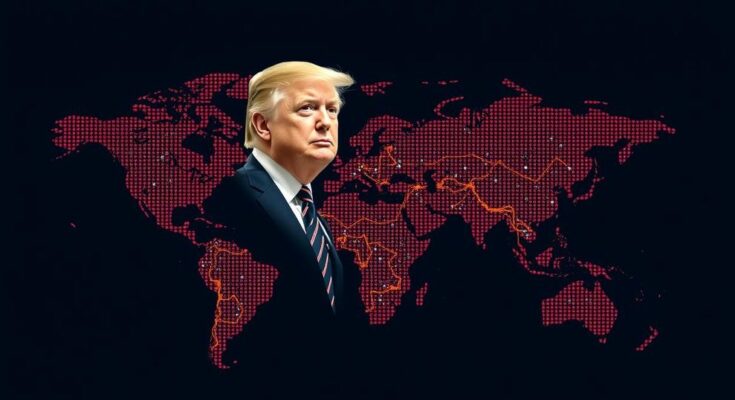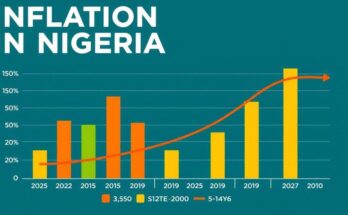Donald Trump’s re-election highlights potential challenges for the global economy through continued protectionist policies and tariffs. The U.S. industrial strategy affects international relations, with China and Europe adjusting to these changes and competing with subsidies. The global community must work collaboratively to avoid overdependence and address pressing issues, given America’s possible retreat from leadership on global matters.
The recent victory of Donald Trump in the 2024 election, coupled with his threat to impose tariffs on all imports to the United States, signals a significant threat to the global economy. The United States stands as a leader in technology and innovation, yet the world faces a crucial need to limit its dependence on American economic dominance. This condition may persist regardless of who occupies the White House, as the “America first” outlook has gained bipartisan support across administrations. Throughout his first term, Trump prioritized the protection of national industries over lower consumer prices, imposing tariffs that have directly impacted consumer costs. For instance, his 2018 tariffs on washing machines raised prices for American customers by approximately 12%. President Biden has continued along this path, applying further tariffs and initiating a subsidy competition designed to bolster U.S. manufacturing at the expense of foreign competitors. Notably, Biden’s actions have resulted in increased tariffs on electric vehicles, solar panels, and batteries from China. The ramifications of U.S. industrial policy extend beyond national borders. China, having shifted from an export-driven economy, now grapples with substantial overcapacity and is striving to stimulate domestic consumption as well as diversify its trading relationships. Conversely, European nations, despite financial constraints, are matching U.S. subsidies to protect their industries, such as Germany’s investment in local battery manufacturers. These protectionist measures not only impede global economic recovery but also divert funds from pressing initiatives, like the electrification of Africa. With Trump’s return to power, there may be an opportunity for innovative approaches to international relations. However, the fundamental challenge remains: the global community must reassess its dependency strategies. For example, Europe could negotiate trade agreements to alleviate China’s excess production while simultaneously enhancing its energy independence and forging cooperative ties that benefit both regions. The current global landscape is marked by escalating conflicts, economic struggles, and growing humanitarian crises. While Trump’s administration may not actively pursue significant global initiatives, such as promoting peace or addressing climate change, the onus now lies on international actors to collaborate more effectively.
The discourse surrounding the potential impacts of Donald Trump’s re-election on global economic dynamics reflects a critical examination of trade policies, protectionism, and international interdependence. The U.S. is recognized for its significant investment in innovation, which has ramifications not only for its consumers but also for global economic stability. The article posits that, irrespective of domestic politics, the need for countries to limit reliance on the U.S. remains pertinent as tariffs and subsidies alter the global trade landscape.
In summary, Donald Trump’s presidency is expected to have profound and multifaceted implications for the global economy, particularly through trade policies that foster protectionism and subsidy races. The world must adapt by seeking cooperation, limiting dependencies, and addressing pressing humanitarian needs, as America appears less inclined to engage in international stability efforts.
Original Source: theconversation.com




